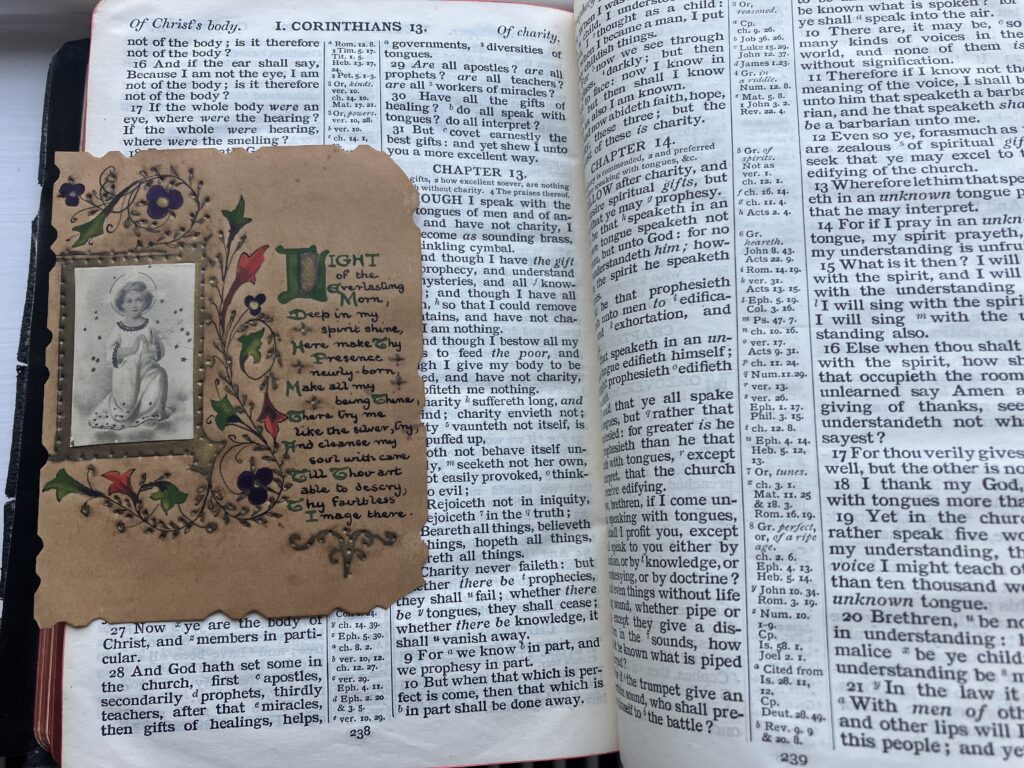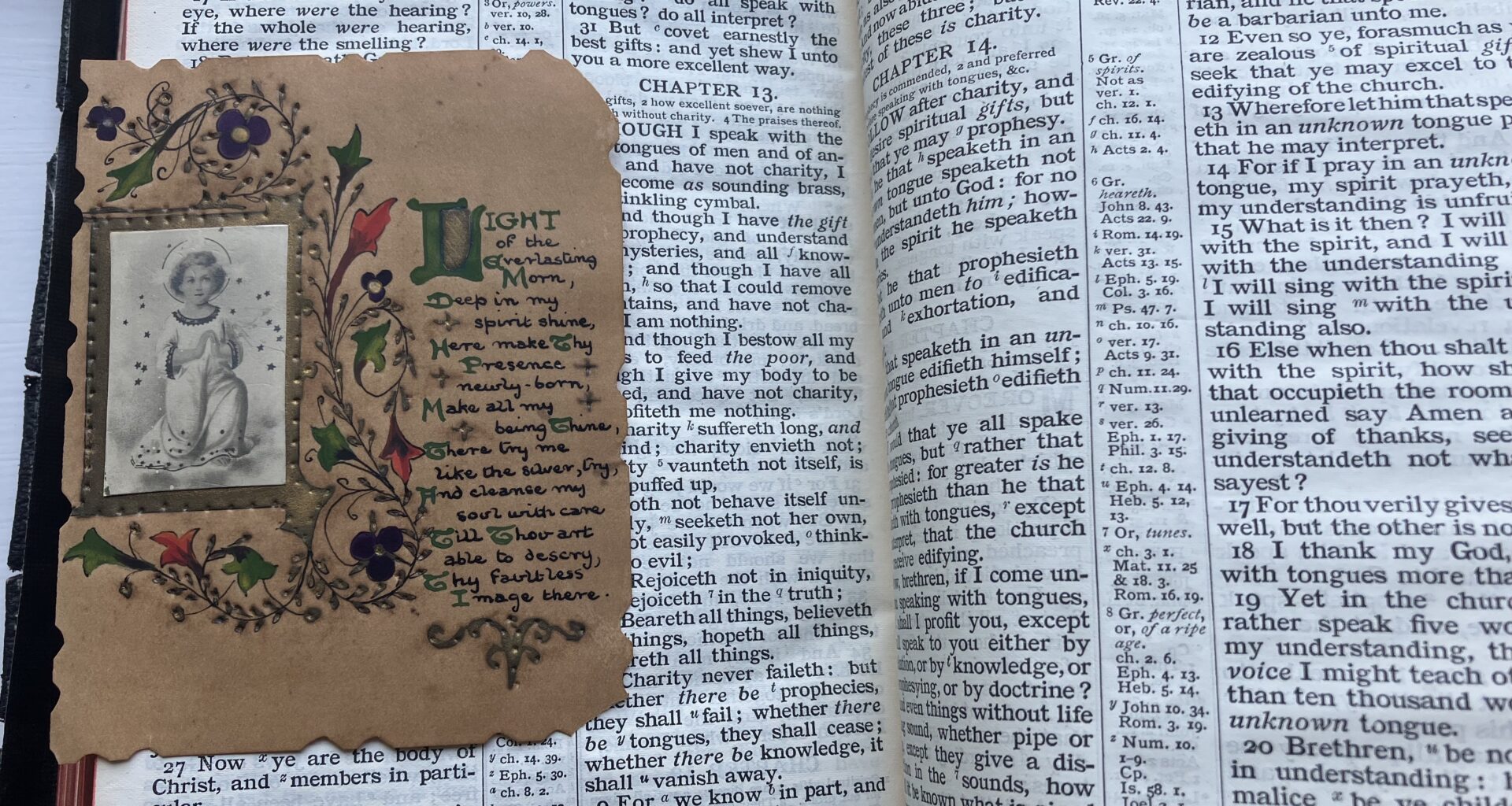
The law on religious education and collective worship in England means that schools are at risk of breaching human rights law. But the government has decided to do nothing about it.
Lost within the high drama in Westminster in the last week have been two important and contradictory developments concerning the law on religion in schools. On 5th July, the High Court of Northern Ireland, in Re JR87 (by her mother and next friend) and her father (“G”) for Judicial Review, held that the law on collective worship and religious education there breached human rights laws, because it was not sufficiently critical or pluralist. On 12th July, the House of Lords voted down an amendment to the Schools Bill that would have ensured that the law in England would be more critical and pluralist: it would have meant that the study of non-religious beliefs would have been explicitly covered as part of a renamed ‘Religion and Worldviews’ subject in academies in England.
On the face of it, the High Court decision in Northern Ireland seems geographically specific. The laws on religious education and worship now differ in each of the four nations of the UK. In Northern Ireland, although the law requires ‘undenominational religious education’, it states that this means that the subject should be ‘based on the Holy Scriptures’ rather than ‘any tenet distinctive of any particular religious denomination’. The reference to ‘Holy Scriptures’ means that it must be Christian. The core syllabus – which applies throughout Northern Ireland – is drafted by the churches and does not mention faiths other than Christianity at all at primary school level.
It is therefore unsurprising that the High Court found that this law breached the parents’ rights under Article 2 of the First Protocol of the European Convention on Human Rights (ECHR) read with Article 9 ECHR. Together, these provide, respectively, for the right for parents to have their children educated in conformity with their (the parents’) philosophical or religious convictions, and for freedom of thought, conscience and religion. However, the reasoning of the Court suggests that schools in England and Wales are also likely to breach human rights.
Collective worship
The concern about human rights compliance in Northern Ireland is in part because of what the High Court there said about collective worship. Colton J noted that it appeared ‘from the evidence that the only external persons invited to attend assembly are exclusively Christian’. He concluded that collective worship was ‘not conveyed in an objective, critical and pluralist manner’.
Although this finding is fact-specific, it raises questions about how collective worship is practised in other schools, not only in Northern Ireland but across the UK. There is nothing in primary legislation in England and Wales that requires collective worship to be pluralistic. Rather, collective worship must be performed on a daily basis and ‘shall be wholly or mainly of a broadly Christian character’. This permits but does not mandate pluralism. Whether this will be enough to render it compliant with human rights will depend on what schools actually do.
Countless pieces of empirical research have demonstrated that the collective worship requirement is regularly breached. There is a longstanding concern that many schools do not hold a daily act of collective worship for all pupils. As long ago as 1994, the General Secretary of the Secondary Heads Association stated that: ‘A law which cannot be obeyed or enforced is a bad law, and it should be amended… This is undoubtedly the case with regard to collective worship in schools’. Yet, paradoxically, it is likely that those schools which are fulfilling the collective worship requirement may well find themselves breaching human rights law.
Providing collective worship that is both ‘wholly or mainly of a broadly Christian character’ and ‘conveyed in an objective, critical and pluralist manner’ – reflecting the right to freedom of religion or belief – is a tricky tightrope for headteachers to walk.
The United Nations Committee on the Right of the Child has repeatedly stated that the UK position breaches human rights. It has expressed its concern that pupils are required by law to take part in religious worship. It has also recommended that the law be changed to ensure that children themselves, as opposed to their parents, have the right to withdraw from such worship.
Even in Wales, where the law on religious education has been reformed, the Education Minister, Jeremy Miles, has shown no appetite for reforming collective worship. He responded to me on Twitter in May that it was not part of the curriculum and so outside the scope of curriculum reform.
The High Court decision in Northern Ireland highlights the two competing legal obligations that schools are faced with. It is surely time that this impasse be resolved. Numerous private member’s bills have been considered, but so far all attempts have failed.
Religious education
The High Court decision in Northern Ireland is also noteworthy for what it said about religious education. Much of its commentary will also apply to England and indeed Wales, notwithstanding the reforms that have transformed Religious Education (RE) into Religion, Values and Ethics (RVE) in Wales but not in England.
At first glance, it might appear that the court’s verdict on the core syllabus is specific to Northern Ireland. The High Court held that ‘on any analysis the teaching of the syllabus can only have the effect of promoting Christianity and encouraging its practice’. However, the key point is that the basis of the Court’s finding was that ‘RE is not conveyed in an objective, critical and pluralist manner’. The High Court discussed in detail the case law of the European Court of Human Rights on the matter. It distilled underlying principles from this case law, including the key requirements that religious education be ‘conveyed in an objective, critical and pluralist manner’ and that it accord ‘equal respect to different religious convictions and to non-religious beliefs’.
While the agreed syllabi developed by a local authority in England and Wales are obliged by law to take into account other religions (and in Wales, other beliefs as well), it is still possible that individual syllabi may be judged to have fallen short of these requirements. This is particularly true of schools with a religious character, which in some cases are permitted to teach RE in accordance with their trust deeds.
In England, moreover, there is no explicit requirement that RE take into account non-religious beliefs, either in terms of the content of the agreed syllabus or in terms of the composition of the local authority bodies who draft and police it. Under English law, the agreed syllabus must reflect ‘the fact that the religious traditions in Great Britain are in the main Christian whilst taking account of the teaching and practices of the other principal religions represented in Great Britain.’ The composition of the local bodies must ‘reflect the principal religious traditions in the area’. There is no mention of non-religious beliefs. The reforms in Wales have redressed this problem, but England still lags behind.
Although pieces of government guidance have gone further, there is still no requirement in English law to consider non-religious beliefs; rather, the requirements of objectivity and pluralism exist implicitly at best. In the recent reforms in Wales, it was decided that these principles underpinned policy-making, but should not be underpinned in legislation.
In short, the law in England, and possibly also in Wales, does not explicitly require that religious education be ‘conveyed in an objective, critical and pluralist manner’ and does not require that schools accord ‘equal respect to different religious convictions and to non-religious beliefs’. This means that it is likely that schools which are fulfilling their legal obligations in terms of the teaching of religion may well be breaching the human rights of parents and pupils.
In Re JR87, the High Court also made it plain, again referring to the Strasbourg case law, that the fact that parents can opt their child out of religious education is no answer to a charge that the religious education provided is not compliant with human rights. As Colton J observed, the case law showed that ‘exemption arrangements were insufficient to mitigate or balance courses which, as the court finds in this case, were insufficiently objective, critical or pluralistic’. The judge stressed that the right to opt out of RE or collective worship ‘is not a sufficient answer to the lack of pluralism identified by the court’:
‘[The right to opt out] runs the risk of placing undue burdens on parents. There is a danger that parents will be deterred from seeking exclusion for a child. Importantly, it also runs the risk of stigmatisation of their children’.
Although this clearly recognises the distinct religious situation in Northern Ireland, it is applicable to the situation in England, where opt-outs exist for pupils in all schools, as well as in Wales, where they are retained in relation to schools with a religious character. It is clear that the existence of an opt-out is no defence to a finding that education is not sufficiently critical or plural. Thus the current legal framework places schools in an unenviable position, with education law pushing them in a direction that risks breaching human rights law.
The Schools Bill
It is fortunate, therefore, that there is a vehicle currently before Parliament that could and should be used to amend the law on religious education and collective worship, in order to ensure that it is compliant with human rights and that schools will not breach human rights by following it. All it would take would be an explicit requirement that non-religious beliefs be included, as well as, ideally, a further requirement for a critical and pluralist approach.
Unfortunately, this opportunity has not been taken by the government. The vehicle in question is the Schools Bill, which has enjoyed a somewhat bumpy ride since being introduced in the House of Lords in May. The Bill is a ragbag of provisions that mostly attempt to resolve problems caused by previous education reforms by the Conservative government. Some of it is welcome, at least in principle, such as the greater scrutiny of unregistered schools. Other aspects, such as the imposition of standards upon academies, are incredibly vague, and it is unclear what the general thinking is behind them other than a power grab by the Secretary of State. The Bill has since been ripped to shreds by the Lords, so much so that whole parts of it have been largely gutted; the government has said that the Lords will have the opportunity to scrutinise the replacement clauses after the Bill has proceeded through the Commons.
The Bill as originally drafted made provision for academies with a religious character which was basically in line with the current law. This led to amendments being considered at the Second Reading that sought to reform the position, especially in relation to academies without a religious character. These proposals sought to recast religious education as ‘religion and worldviews’ and sought to make explicit the inclusion of non-religious beliefs. Unfortunately, however, they were rejected. Similarly, amendments were tabled and rejected to replace collective worship with inclusive assemblies, following the unsuccessful approach of a recent private member’s bill.
At the Report Stage on 12th July, after the decision in Northern Ireland, a further attempt was made to amend the Bill’s stance on religious education, on similar lines to the previous amendment. But this too was unsuccessful, voted down by a majority of 145 to 82.
Baroness Meacher, tabling the amendment, stated that all it would do would be to ensure that education law in England would be in line with the recent legal cases and developments in Wales: ‘surely we do not want to be left behind by Wales.’
Baroness Penn, responding for the government, saw the reform as unnecessary, since ‘worldviews can already be taught as part of religious education’. She also insisted that such reform would go against the spirit of the legislation, which sought ‘largely to consolidate existing requirements on academies, not place more burdens on them or interfere with their freedoms’. The government, she said, believes that academies ‘should be free to determine their own approach to the teaching of RE’.
It is that word ‘can’, italicised above, that is the crux of the issue here. The Northern Ireland case and developments in Wales highlight that ‘can’ ought to be replaced by ‘should’. In order to be compliant with human rights, worldviews should be taught as part of religious education. The absence of an explicit statutory obligation to do so means that schools in practice are more likely to be in breach of human rights provisions by adopting a narrowly denominational understanding of RE.
Baroness Penn said that the Schools Bill should ‘not specify the nature of how RE should be taught, which we think is best determined at the local level.’ This is absolutely right – though I think it should be determined at the school level rather than by local authorities. However, the amendment would not have affected this, but would have cleared up the statutory obligations on schools by showing them how to meet human rights standards. In contrast, the law as it currently stands pulls schools in the opposite direction, leading to confusion and a conflict between obligations under education law and human rights law.
Concluding thoughts
The judgment of the High Court in Northern Ireland makes it plain that changes are needed to the law on religion in schools in England and Wales in order to make it compliant with human rights. The knee-jerk rejection by the government of amendments to the Schools Bill is therefore foolhardy. In the absence of reform, schools are left to attempt to marry education law and human rights obligations, which at the moment are an ill-fitting pair.
The best that can now be hoped is that further amendments along the lines of those proposed by Baroness Meacher will be considered via private member’s bills or by the Commons, if the Schools Bill continues that far. But reform of the law on religion in schools is unlikely to ever become a priority for any government. As I document in my new book, Religion in Schools: Learning Lessons from Wales, the reforms that occurred in the 1940s, 1980s and more recently in Wales, were all side effects of wider reforms of the curriculum. Grappling with the law on religious education, collective worship and the position of faith schools was seen as a necessary evil.
Yet, as the amendments to the Schools Bill have shown, the main issues with the current law could be easily resolved. Adding ‘and non-religious beliefs’ would basically do the job. Religion in Schools outlines how more comprehensive reform could take place.
There is a danger that the government’s Bill of Rights may end up resolving the matter by weakening human rights protections and the courts’ powers of interpretations. This may entrench the non-pluralistic starting point found in domestic law. As I argued in my previous post for the Freethinker, the Human Rights Act 1998, for all its faults, has played an important role in requiring that protection be afforded not just on grounds of religion but also on grounds of belief. The Orwellian-titled Bill of Rights is actually about the restriction if not removal of rights, and is highly dangerous.
The current position makes further litigation inevitable. The Bill of Rights would mean that such challenges would occur in Strasbourg rather than in domestic courts. And all the time, while this legal wrangling continues, children will miss out on an education that explores religions and beliefs in an objective, critical and pluralist manner. The result can only be the fostering of illiteracy and intolerance.
Enjoy this article? Subscribe to our free fortnightly newsletter for the latest updates on freethought. Or make a donation to support our work into the future.









2 comments
Your email address will not be published. Comments are subject to our Community Guidelines. Required fields are marked *
Donate